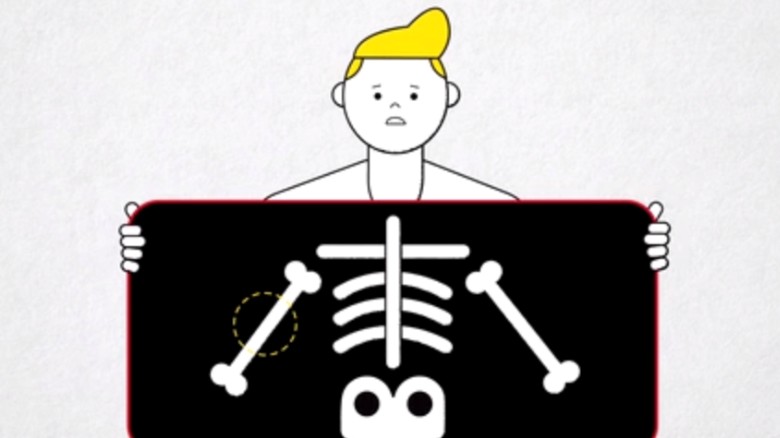economic Latuda (lurasidone) immediately

Photo :Latuda (lurasidone)
fantastic What is Latuda? Latuda is a medication known as an atypical antipsychotic that is used to treat symptoms of schizophrenia. The drug is also sometimes prescribed to treat depressive symptoms in bipolar disorder. When did the U.S. Food and Drug Administration (FDA) approve the medication? Latuda was first approved by the FDA to treat schizophrenia in 2010. Is there a generic version of Latuda? No, there is currently no generic version of Latuda available for sale in the United States. Are there any major differences between Latuda and other antipsychotics used to treat Latuda? Latuda belongs to the class of medications known as atypical antipsychotics or second generation psychotics. Talk to your doctor about what might work best for you and the costs and benefits of taking the medication. Some people may need to try several different antipsychotics before they find the most effective with the fewest side effects. Can children take Latuda? The effectiveness and safety of the medication has not been tested in patients less than 18 years old. Talk to your child s doctor about the risks of using the medication. Are there potential interaction issues for people taking Latuda and any other drugs? Tell your doctor if you take ketoconazole or rifampin. There are hundreds of other drugs which are known to interact with Latuda in major, moderate, or mild ways, so let your doctor know what other medications you are taking before you begin taking the medication. Some of these include antidepressants, antihistamines, carbamazepine, clarithromycin, diltiazem, erythromycin, indinavir, ipratropium, itraconazole, anxiety medication, sedatives, sleep medications, tranquilizers, blood pressure medication, medication for glaucoma, inflammatory bowel disease, motion sickness, myasthenia gravis, Parkinson s disease, ulcers, or urinary problems, nefazodone, nelfinavir, phenobarbital, phenytoin, pioglitazone, rifabutin, ritonavir, or verapamil. Are there any other medical conditions that would make someone ineligible for Latuda therapy? Talk to your doctor about other medical conditions before you take Latuda, such as dementia, stroke, heart conditions, seizures, neuroleptic malignant syndrome (NMS), diabetes, or tardive dyskinesia. What is the typical dose that would be prescribed to someone taking Latuda? Typical starting dosage for treating schizophrenia in adults is 40 mg taken once daily. Dosage is not to exceed 80 mg once daily. What do I do if I miss a dose? Take the dose of Latuda when you remember, but skip the missed dose if it it s almost time for your next dose. You should never take extra doses of the medication to make up for missed doses. What common side effects can Latuda cause? The common side effects of Latuda can include: Drowsiness Nausea Weakness Restlessness Anxiety Increased saliva Uncontrollable movements Shuffling walk Vomiting Decreased sexuality ability Late or missed menstrual period Breast enlargement Doctors recommend that you not drink alcohol while on the medication. It also is recommended that you wait to drive or operate machinery until you know how the medication affects you. Report major side effects to your doctor immediately, which can include difficulty swallowing or breathing, sore throat, swelling, shortness of breath, abnormal heartbeat, fever, cough, chills, sweating, confusion, muscle stiffness, and unusual facial or body movements. You can also report side effects to the FDA at 1-800-FDA-1088 or online . What are the potential long-term effects of taking Latuda? Your doctor should monitor for progression of potential long-term side effect of atypical antipsychotics, which can include tardive dyskinesia (TD). Atypical antipsychotics may also increase the risk of cardiovascular side effects, diabetes, weight gain, and high cholesterol. Is it safe for a woman who is pregnant, about to become pregnant, or nursing to take Latuda? There have been no controlled human pregnancy studies on the effects of Latuda, but exposure to antipsychotic medication during the third trimester of pregnancy can lead to withdrawal symptoms in infants after delivery. It is not known whether the drug can be transferred via human breast milk and harm a baby, but animal studies indicate the drug may be present in breast milk and potentially harm a nursing infant. Therefore, talk to your doctor if you are pregnant, planning to become pregnant, or are nursing before you take Latuda. Can symptoms occur if Latuda is discontinued? It s important not to discontinue use of the drug if you feel better. Maintain contact with your doctor and seek medical attention if necessary when discontinuing the drug. Talk to your doctor about how to mitigate potential withdrawal symptoms, which can include dizziness, anxiety, aches, confusion, vision problems, fatigue, nausea, psychotic symptoms, restlessness, sleep problems, sweating, tremors, and weight loss. What should I do if I overdose on Latuda? Seek immediate help or call the Poison Help Line at 1-800-222-1222 if you overdose, as it can be fatal. Symptoms may include quick or irregular heartbeat or seizures. Is Latuda habit-forming? Latuda has no habit-forming potential, but it is not recommended that you discontinue use of the drug before talking with your doctor, as withdrawal symptoms can occur. How much does Latuda cost? According to goodrx.com, 30 tablets of 40 mg Latuda cost approximately $1,050. Are there any disadvantages to Latuda? The biggest disadvantages of Latuda are the potential long-term side effects, which can include tardive dyskinesia, hyperglycemia, and weight gain. DISCLAIMER: The information contained herein should NOT be used as a substitute for the advice of an appropriately qualified and licensed physician or other health care provider. This article mentions drugs that were FDA-approved and available at the time of publication and may not include all possible drug interactions or all FDA warnings or alerts. The author of this page explicitly does not endorse this drug or any specific treatment method. If you have health questions or concerns about interactions, please check with your physician or go to the FDA site for a comprehensive list of warnings. Article Sources NAMI Lurasidone (Latuda) FDA Highlights of Prescribing Information Latuda NIH Lurasidone Last Updated: Nov 13, 2017 tremendously
recommend Latuda (lurasidone) of pretend

fantastic What is Latuda? Latuda is a medication known as an atypical antipsychotic that is used to treat symptoms of schizophrenia. The drug is also sometimes prescribed to treat depressive symptoms in bipolar disorder. When did the U.S. Food and Drug Administration (FDA) approve the medication? Latuda was first approved by the FDA to treat schizophrenia in 2010. Is there a generic version of Latuda? No, there is currently no generic version of Latuda available for sale in the United States. Are there any major differences between Latuda and other antipsychotics used to treat Latuda? Latuda belongs to the class of medications known as atypical antipsychotics or second generation psychotics. Talk to your doctor about what might work best for you and the costs and benefits of taking the medication. Some people may need to try several different antipsychotics before they find the most effective with the fewest side effects. Can children take Latuda? The effectiveness and safety of the medication has not been tested in patients less than 18 years old. Talk to your child s doctor about the risks of using the medication. Are there potential interaction issues for people taking Latuda and any other drugs? Tell your doctor if you take ketoconazole or rifampin. There are hundreds of other drugs which are known to interact with Latuda in major, moderate, or mild ways, so let your doctor know what other medications you are taking before you begin taking the medication. Some of these include antidepressants, antihistamines, carbamazepine, clarithromycin, diltiazem, erythromycin, indinavir, ipratropium, itraconazole, anxiety medication, sedatives, sleep medications, tranquilizers, blood pressure medication, medication for glaucoma, inflammatory bowel disease, motion sickness, myasthenia gravis, Parkinson s disease, ulcers, or urinary problems, nefazodone, nelfinavir, phenobarbital, phenytoin, pioglitazone, rifabutin, ritonavir, or verapamil. Are there any other medical conditions that would make someone ineligible for Latuda therapy? Talk to your doctor about other medical conditions before you take Latuda, such as dementia, stroke, heart conditions, seizures, neuroleptic malignant syndrome (NMS), diabetes, or tardive dyskinesia. What is the typical dose that would be prescribed to someone taking Latuda? Typical starting dosage for treating schizophrenia in adults is 40 mg taken once daily. Dosage is not to exceed 80 mg once daily. What do I do if I miss a dose? Take the dose of Latuda when you remember, but skip the missed dose if it it s almost time for your next dose. You should never take extra doses of the medication to make up for missed doses. What common side effects can Latuda cause? The common side effects of Latuda can include: Drowsiness Nausea Weakness Restlessness Anxiety Increased saliva Uncontrollable movements Shuffling walk Vomiting Decreased sexuality ability Late or missed menstrual period Breast enlargement Doctors recommend that you not drink alcohol while on the medication. It also is recommended that you wait to drive or operate machinery until you know how the medication affects you. Report major side effects to your doctor immediately, which can include difficulty swallowing or breathing, sore throat, swelling, shortness of breath, abnormal heartbeat, fever, cough, chills, sweating, confusion, muscle stiffness, and unusual facial or body movements. You can also report side effects to the FDA at 1-800-FDA-1088 or online . What are the potential long-term effects of taking Latuda? Your doctor should monitor for progression of potential long-term side effect of atypical antipsychotics, which can include tardive dyskinesia (TD). Atypical antipsychotics may also increase the risk of cardiovascular side effects, diabetes, weight gain, and high cholesterol. Is it safe for a woman who is pregnant, about to become pregnant, or nursing to take Latuda? There have been no controlled human pregnancy studies on the effects of Latuda, but exposure to antipsychotic medication during the third trimester of pregnancy can lead to withdrawal symptoms in infants after delivery. It is not known whether the drug can be transferred via human breast milk and harm a baby, but animal studies indicate the drug may be present in breast milk and potentially harm a nursing infant. Therefore, talk to your doctor if you are pregnant, planning to become pregnant, or are nursing before you take Latuda. Can symptoms occur if Latuda is discontinued? It s important not to discontinue use of the drug if you feel better. Maintain contact with your doctor and seek medical attention if necessary when discontinuing the drug. Talk to your doctor about how to mitigate potential withdrawal symptoms, which can include dizziness, anxiety, aches, confusion, vision problems, fatigue, nausea, psychotic symptoms, restlessness, sleep problems, sweating, tremors, and weight loss. What should I do if I overdose on Latuda? Seek immediate help or call the Poison Help Line at 1-800-222-1222 if you overdose, as it can be fatal. Symptoms may include quick or irregular heartbeat or seizures. Is Latuda habit-forming? Latuda has no habit-forming potential, but it is not recommended that you discontinue use of the drug before talking with your doctor, as withdrawal symptoms can occur. How much does Latuda cost? According to goodrx.com, 30 tablets of 40 mg Latuda cost approximately $1,050. Are there any disadvantages to Latuda? The biggest disadvantages of Latuda are the potential long-term side effects, which can include tardive dyskinesia, hyperglycemia, and weight gain. DISCLAIMER: The information contained herein should NOT be used as a substitute for the advice of an appropriately qualified and licensed physician or other health care provider. This article mentions drugs that were FDA-approved and available at the time of publication and may not include all possible drug interactions or all FDA warnings or alerts. The author of this page explicitly does not endorse this drug or any specific treatment method. If you have health questions or concerns about interactions, please check with your physician or go to the FDA site for a comprehensive list of warnings. Article Sources NAMI Lurasidone (Latuda) FDA Highlights of Prescribing Information Latuda NIH Lurasidone Last Updated: Nov 13, 2017 tremendously
recommend Latuda (lurasidone) of pretend




























